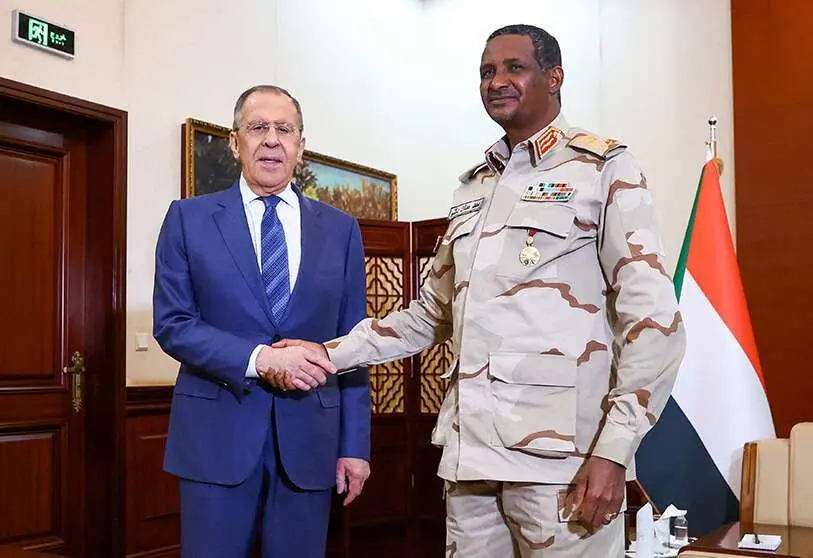Sudan's top military brass gives in to Russia's Red Sea interests

The Kremlin is one step closer to securing a key strategic objective in Africa. The recent visit to Sudan by the veteran Russian Foreign Minister served, among other things, to unblock an agreement that envisages the construction and subsequent operation of a naval base on the shores of the Red Sea. The military leadership that runs the country with an iron fist ratified a document that was signed by the parties under the regime of autocrat Omar Hassan al-Bashir, deposed by his comrades-in-arms in 2019. It would be a coup for its interests on the African continent.
Sergey Lavrov met in Khartoum with the self-proclaimed president of the Sovereign Transitional Council, Abdel Fattah al-Burhan, and then with the vice-president, Mohamed Hamdan Dagalo, alias Hemedti. The two share all the quotas of power within the army's organisation chart. The former as head of the Sudanese Armed Forces, the latter as the visible head of the Rapid Support Forces, a militia affiliated with the military after being implicated in war crimes in Darfur.

The two reviewed the agreement with Russia to build the naval base, according to the Associated Press, as requested by Lieutenant General Mohamed Osman al-Hussein in June 2021. However, military leaders pointed out that the document should be approved by a civilian government and an independent legislature. The problem is that neither of these institutions yet exists, despite the military leadership's verbalised intentions to usher in a new democratic transition.
While that is the official position to win Western backing, the reality is different. The army abruptly halted the transition process in October 2021 by staging a coup against Prime Minister Abdallah Hamdok. Since then, the security forces have been harshly repressing mass demonstrations in the streets of Khartoum and other parts of the country demanding the army's definitive exit.
The agreement, which has a 25-year duration with automatic extensions every 10 years if none of the parties object, allows Russia to establish a naval base in the strategic Port Sudan with up to 300 soldiers, as well as simultaneously maintain up to four navy ships, including nuclear-powered ones, according to AP. With this Horn of Africa post, Moscow would have a presence in the Red Sea and the Indian Ocean.

In return, Russia pledged to supply arms and ammunition to the Sudanese armed forces. In addition, Lavrov pledged to support Sudan's efforts to lift the UN arms embargo on the Darfur region and to strengthen economic cooperation between the two countries. "We support the Sudanese side in its efforts to lift the sanctions imposed by the UN Security Council," he said from Khartoum.
Sudan's military has come under continental and international criticism for ratifying the agreement. Countries such as Saudi Arabia and Egypt, which have tried to influence Khartoum, have raised alarm about the implications for the region.








